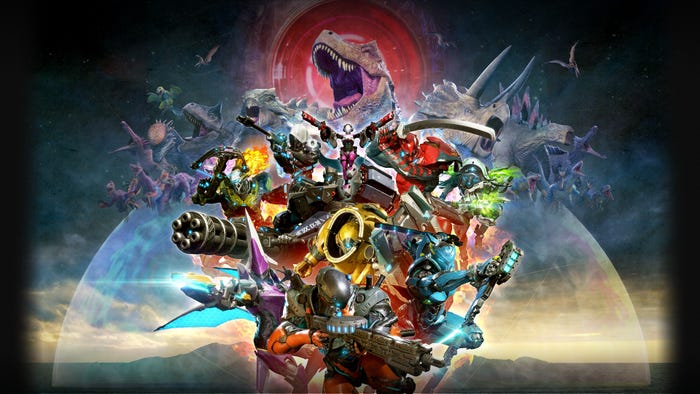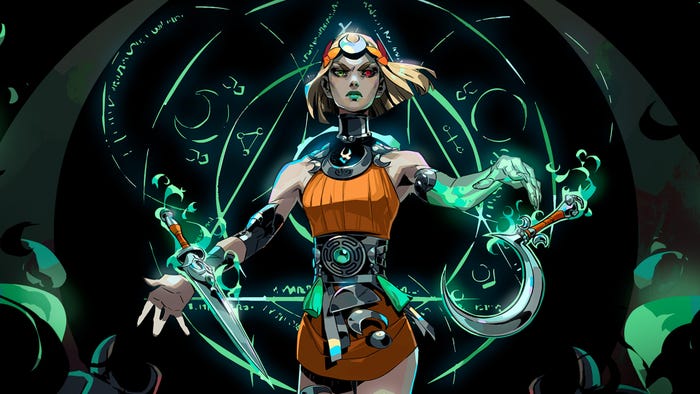
Featured Blog | This community-written post highlights the best of what the game industry has to offer. Read more like it on the Game Developer Blogs.
What Indie Game Developers Can Learn From Jordan Mechner's Book "The Making Of Karateka"
While the story is more than 30 years old, the parallels in The Making Of Karateka to developing indie games today are uncanny. For me, reading it was an experience of universal truth, validation, and exhilaration at the unfolding development story.

 I've always been a huge fan of Jordan Mechner's Karateka. Released in late 1984, it was one of the major games that bridged the gap between the pure arcade games of "Golden Age of Atari" and the richer story telling of the "Nintendo Age." Written for the Apple II, the game became a #1 hit, was released on every platform available at the time, and has since been re-released on iOS, Android plus re-imagined on XBLA and PSN. While I always found the game fairly difficult, I loved the cinematics, the animation, and the challenge the game offered. It was head and shoulders (plus a second head and shoulders) above nearly any game of the type I played at the time, and is one of the true classics from that era.
I've always been a huge fan of Jordan Mechner's Karateka. Released in late 1984, it was one of the major games that bridged the gap between the pure arcade games of "Golden Age of Atari" and the richer story telling of the "Nintendo Age." Written for the Apple II, the game became a #1 hit, was released on every platform available at the time, and has since been re-released on iOS, Android plus re-imagined on XBLA and PSN. While I always found the game fairly difficult, I loved the cinematics, the animation, and the challenge the game offered. It was head and shoulders (plus a second head and shoulders) above nearly any game of the type I played at the time, and is one of the true classics from that era.
Since the game was released by Broderbund, a well-known game company, I was never especially curious about how it was made, how it was programmed, or the story behind's its' creation. At the time, I was a 14 year-old aspiring game programmer when Karateka was released. I loved reading stories about people who made their own games, put them in baggies, and sold them to computer stores all by themselves. I was just getting started, writing public domain games in BASIC for my Atari 800 and uploading them to BBS systems as manner of distribution, pretty much as indie as you could get. I could not be bothered with the origins of a game from major company like Broderbund.
Since it came from a big software house, I just figured Karateka was one of a slate of like-games Broderbund had in production pipe-line. Also, I knew the game was made for Apple II and Commodore 64 first. Since I was an Atari fan through and through, it was difficult for me to get my head around the fact that this amazing game was not an Atari-first product. Eventually it was released for the Atari 7800, Atari 800, and Atari ST, but I don't think I could ever forgive the fact that it was was written for Apple and Commdore computers first.
That's the hell of being a life-long Atari fan.
 It took me 30 years, but I finally got around to finding out the origin story the game by reading Jordan Mechner's book "The Making Of Karateka." Now I wish I had studied this game and its' story a long time ago, as I found it an essential narrative for indie game developers.
It took me 30 years, but I finally got around to finding out the origin story the game by reading Jordan Mechner's book "The Making Of Karateka." Now I wish I had studied this game and its' story a long time ago, as I found it an essential narrative for indie game developers.
Presented in diary format, the story does not start in the glass and wood paneled halls of a successful Marin County software company as I expected, but instead, in dorm room behind the CRT glow of an Apple II monitor. Jordan Mechner was a college student at Yale in 1982, trying his hand at writing computer games in assembly language for the Apple II. Since this is purportedly Mechner's actual diary (and there is no reason to disbelieve him), we don't get a full back story of how he got to this point in his life. It starts abruptly, as the reader is dropped into his thoughts about game development from the very start. When we meet him, he's toiling away programming an arcade game named Deathbounce for the Apple II, attempting to apply lipstick to his pig in any way possible, hoping to shape it into the game he always hoped it would be. It's not that Deathbounce is bad game, it's just a game whose time has passed. By 1982, the arcade game era was over. "Arcaders" (as "gamers" were called back then) had seen and played almost every combination of single-screen action games. They were looking for more, and so it seems, was Jordan Mechner. Eventually he gives-up on Deathbounce, as a better idea takes over: a karate fighting game with movie-style story-telling.
From the very beginning of the story, I was struck by the universality of Mechner's plight. I don't want to give away too much of the story, but the ending is never in doubt. Anyone who knows the history of computer games knows that Karateka was an institution in the 80's. It was the type of game that computer owners booted-up to make their game console owning friends green with envy. However, Mechner's journey is the real star of the show here, and there are tons of great lessons within the text for indie game developers. I personally took away a lot of inspiration and validation of my own experiences. Mechner's Deathbounce story is great example. He puts so much work into the game, but eventually cuts his losses with it, and puts it aside for good. Any game developer that has a stack of unfinshed ideas on their hard drive will instantly recognize the experience. 
Mechner is obviously a smart and artistic guy with the advantage of attending an Ivy League school. But even for him, Karateka becomes quite an achievement. The way he describes using every resource at his disposal to create the game play, graphics, and sounds for Karateka is inspiring and not unlike the methods that many successful one or two-person game shops employ today.
Mechner also describes in detail, the struggle between programming a game on contract, and finishing his work on Karateka. Anyone who has tried to run an indie game shop, attempting to bring their ideas to life while funding them with outside work will instantly recognize the situation. At the same time, Mechner's struggles with self-doubt, insecurity, and the feeling that he has somehow "missed the golden era" should ring true with anyone who has ever made game in the ever-changing technology landscape.
Eventually Mechner does join-up with the "big game company" Broderbund, after many months of working on his own, but even that experience mirrors the modern world. The in-house programmers Mechner meets at Broderbund feel over-worked and unappreciated. Everyone seems to be looking for a way out and a chance to make it on their own. However, Mechner loves the camaraderie of making games with a team, and nicely juxtaposes his life as a dorm-room coder to his life meeting fellow developers and coming out of his shell at while trying to finish Karateka at Broderbund.
Karateka was not a game made overnight, and this is another great lesson for indie game developers in the mobile/digital age. At first, Mechner believes it will take just a few months to develop, but as he gets further and further into the project, he realizes just how much work is involved in creating such an epic contest. If he produced only the basic Karate game he planned at the outset, and then sold it to a publisher, he would have made a little money, but the game could (and would) have been easily copied by other programmers and made for other systems. Instead, he poured 2 years of hard work into a game that was so advanced for the time in every possible way, it was almost impossible to clone without great effort.
While the story is more than 30 years old, the parallels in The Making Of Karateka to developing indie games today are uncanny. For me, reading it was an experience of universal truth, validation, and exhilaration at the unfolding story of struggle and success. Technology always changes. Platforms rise and fall. Companies go in and put of business. However, the drive of a single person with a unique vision is at the heart of making great games. Reading about Jordan Mechner's struggle to bring Karateka to life is at once both inspirational and cathartic. It should be required reading for any developer currently toiling in the modern game industry.
(Cross posted from my blog at 8bitrocket.com)
Read more about:
Featured BlogsAbout the Author(s)
You May Also Like













